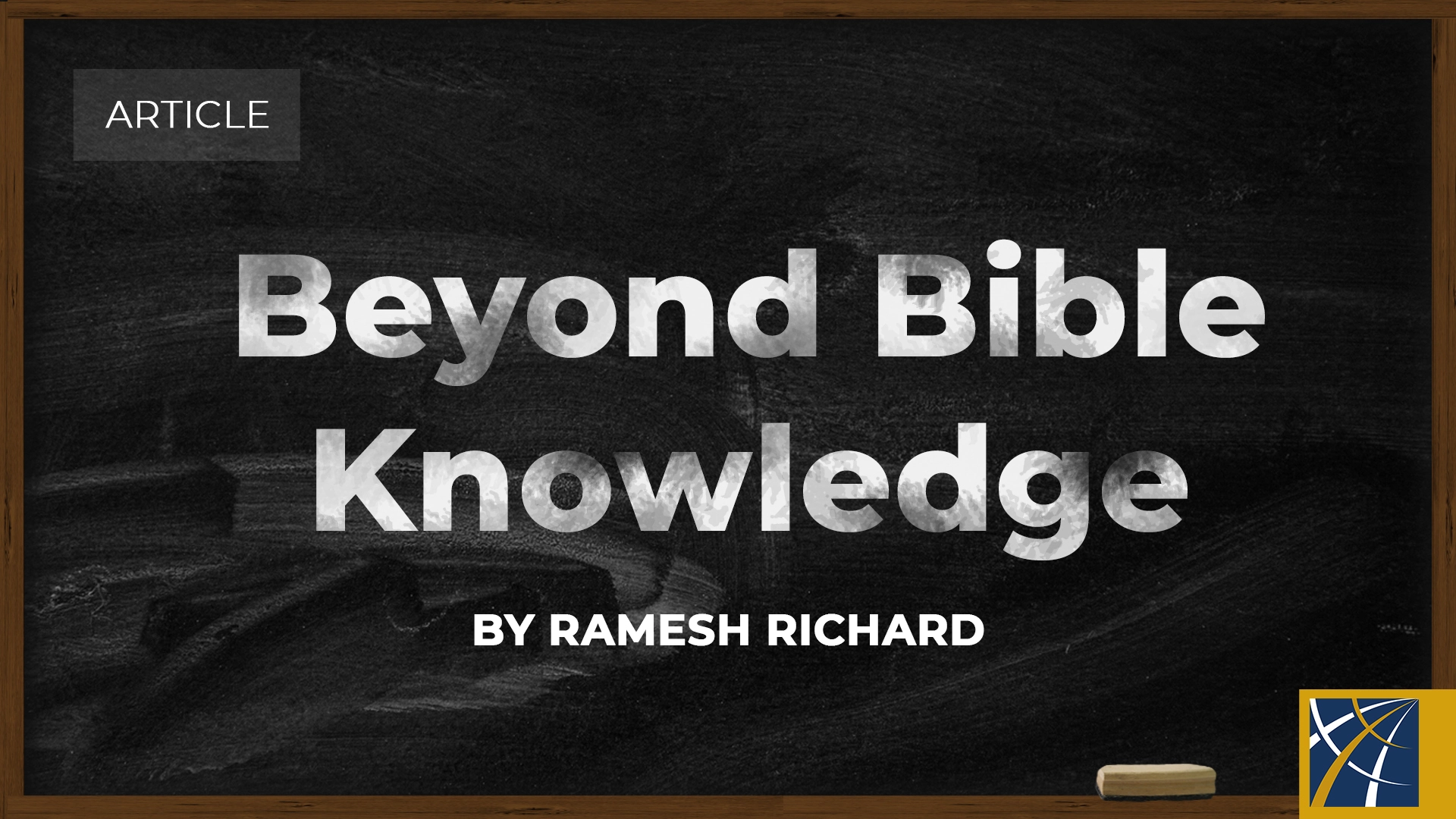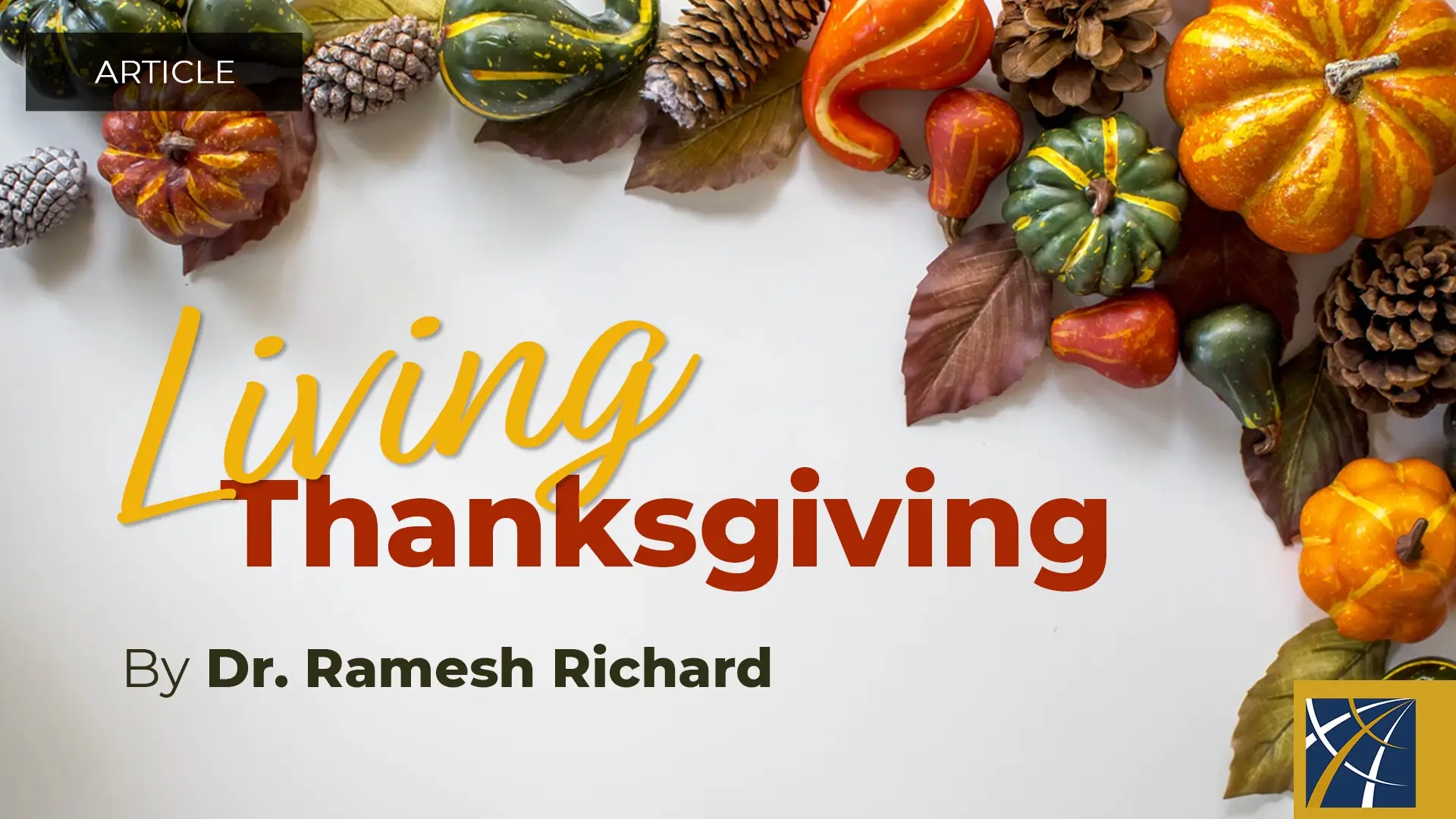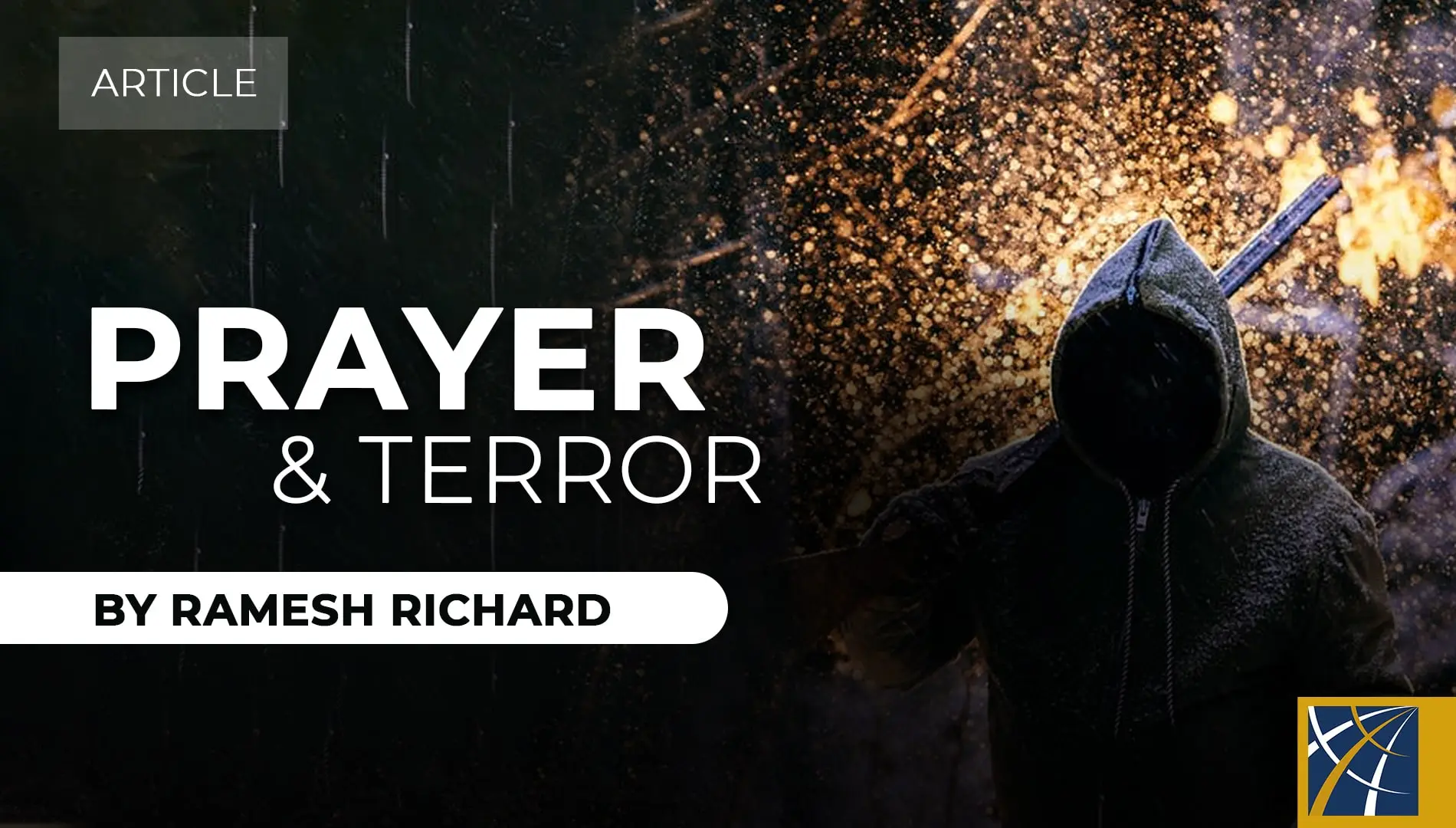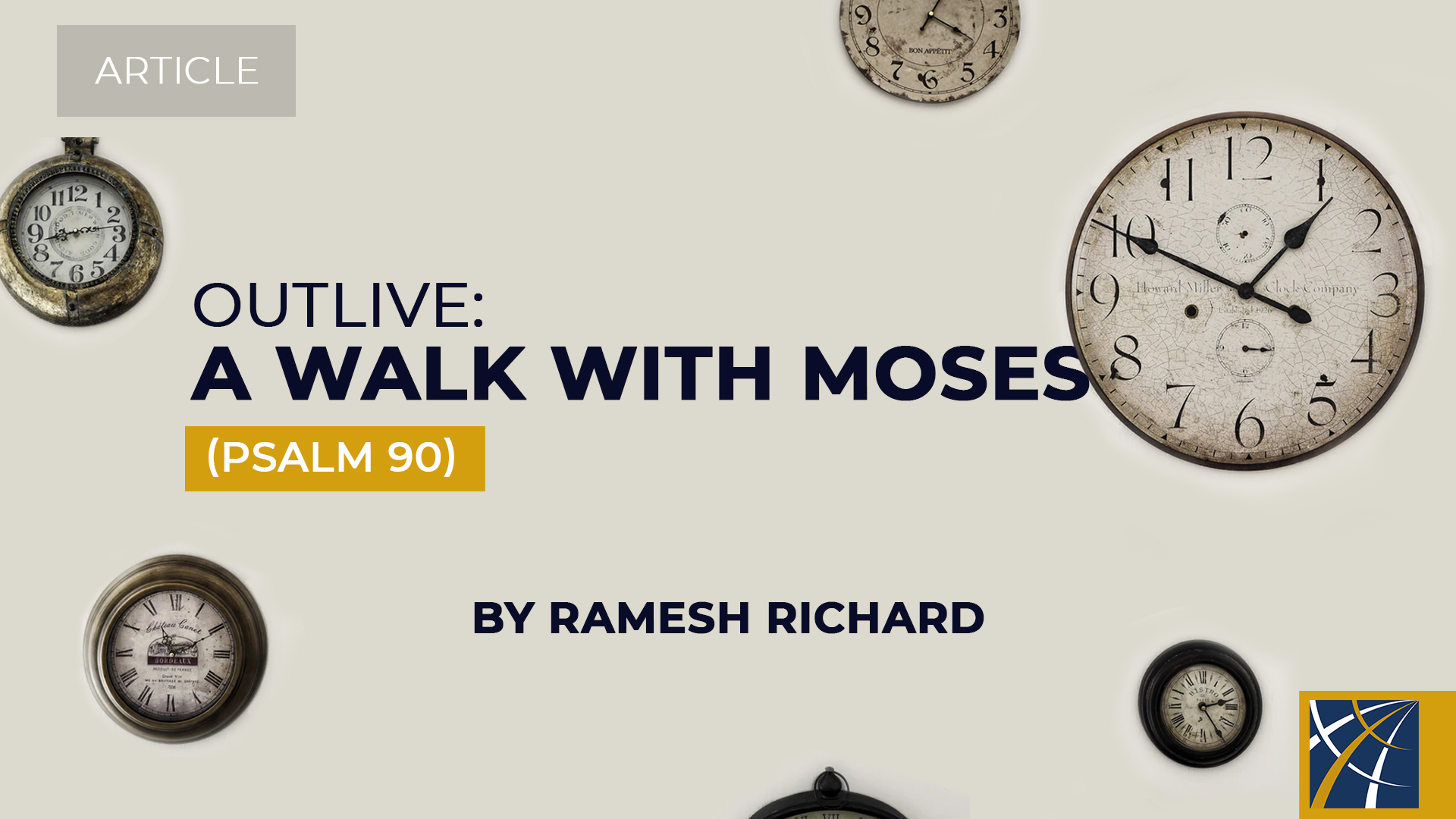by Ramesh Richard
In a season when many are returning to the classroom for another school year, I am reminded of my 5th grade teacher, Mrs. Roberts, who first piqued my interest in the Bible. Although strict and stern—her face reminded me of the introduction to Lamentations—she came alive in Bible class, rousing our participation by assigning Bible verses to memorize for tests and contests.
Whenever I turn to Psalm 91, I am immediately confronted by a dozen childhood memories. More than 50 years ago, Mrs. Roberts had our class compete as we memorized that 91st psalm. Three of us made the “finals.” As we recited the psalm before our class, my classmates made only one mistake each. She still awarded both students with a Bible. It was the first, perhaps the only, Bible my Hindu friends would have. That was her evangelistic heart.
Mrs. Roberts believed in rote memory work during elementary school. Just like knowing the multiplication tables was necessary for math, Bible knowledge was essential for life. She was setting us up with foundational knowledge. The first order of learning: to know and to remember. I can still recite Psalm 91 fairly well.
When I went to seminary, I went beyond knowing and remembering to analyzing the Bible. Seminary professors still encouraged rote learning of biblical Greek and Hebrew vocabulary. But then they taught us to study and structure the biblical text to recover the author’s intended meaning.
Psalm 91:1 is enough to preoccupy me for hours.
“He who dwells in the shelter of the Most High
Will abide in the shadow of the Almighty.”
For example, the Most High One, the Almighty, is described as our shelter and shadow. He is also viewed as our spiritual geography—a dwelling place (also v. 9) and resting place. A couple of verses down (v. 4), this One of worldwide dominion and sovereign power covers us and shields us—the wing above us and the wall around us.
So first, we must memorize and then analyze. But to truly learn, we must synthesize that knowledge and integrate it into our lives. Biblical wisdom is personally applied biblical knowledge.
These days, I have had much need of this psalm of confidence and courage. I wonder if you need it too. I am not surprised that God placed it in my path at this particular time of my life so I might personally receive (level 3) what I diligently recover (level 2) by remembering this psalm from my earliest days (level 1).
“I will say to the LORD, my refuge and my fortress, my God, in whom I trust” (v. 2, emphasis added).
So here are the orders of learning (what experts call a taxonomy of learning), starting with and going beyond biblical knowledge.
First, I remember the information contained in the psalm—the lowest rung on the ladder of learning. “Remembrance” is often seen as a tool for spiritual growth. Recall what Jesus said of the Lord’s Supper: “Do this in remembrance of Me.” I can only remember what I already know.
Next, I recover by analysis and evaluation what the biblical author intended. I ask questions like, “What is really promised in this psalm? Is my interpretation sustained by the rest of Scripture?” For example, does God’s promise of security in Psalm 91 extend my earthly life? No. Does it absolutely guarantee physical security? No. The Lord Jesus, the only One who could have legitimately, directly and fully claimed this psalm, did not live a long or safe life. In fact, Satan tempted Him (Matthew 4:6) using this very psalm. But our Lord refused to test God. Neither shall we. We shall simply trust Him.
Finally, I receive into my life whatever the biblical text proposes—the final rung of effective learning. Will I live with confidence? Will I find my dwelling place in the Almighty, hiding and resting in Him? Can I serve with courage, trusting the Most High One for safety during hostility, stability in volatility, security in turmoil? In Jesus I possess eternal, not temporary, life. Longevity and safety are now and forever.
A long-standing practice in our family is reading Psalm 91 at each child’s birthday. My father would substitute our names for every third person pronoun in verses 14–16 so we could personally receive what God Himself said to the psalmist. This is how my father would read it to me:
“Because Ramesh has loved Me, therefore I will deliver Ramesh; I will set Ramesh securely on high, because Ramesh has known My name. Ramesh will call upon Me, and I will answer Ramesh; I will be with Ramesh in trouble; I will rescue Ramesh, and honor Ramesh. With a long life I will satisfy Ramesh, and let Ramesh behold My salvation.”
Wow! I need that kind of divine assurance. That personal reception beyond biblical knowledge provides for spiritual courage, astute decision-making, emotional stability and fortitude.
Recent headlines remind me I am not sure of the known-knowns of my life, let alone the known-unknowns, and never mind the unknown-unknowns! However, I will remember my early memory work. I will do my best to recover what the authors (both human and divine) intended. I will personally receive the psalm’s assurance into the future.
I also recommend this biblical study method for your comfort, confidence and courage as we start this new school year. Whether or not you’re beginning a new semester of academic studies, consider starting the fall by memorizing Psalm 91. Insert your name into verses 14-16.
The photos of my parents and Mrs. Roberts now hang on my wall of seven mentors. They never stopped reading and studying the Bible. They went beyond knowing the Bible to living it under God. And now, praise His name, they are experiencing the fullness of that faith in the presence of the Lord Jesus.





